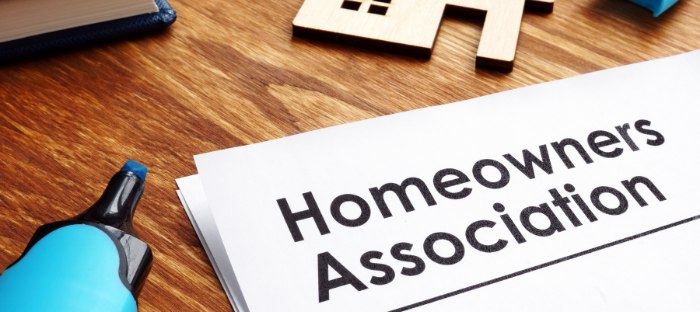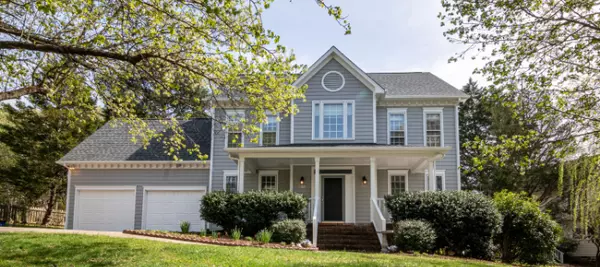What You Need To Know About Homeowners Associations
What You Need To Know About Homeowners Associations.

What is a homeowners association?
A homeowners association is a non-profit organization that manages the property of an entire neighbourhood. Most HOAs are organized by subdivisions, housing developments, condominiums or planned unit developments where part of the costs of maintaining the common areas are paid through monthly fees called dues.
What does a homeowners association do?

A well-run HOA is responsible for a wide range of tasks, from maintaining common areas and enforcing rules and regulations to planning events and organizing social activities. HOAs also manage finances, often through a reserve fund that collects dues overtime to pay for large-scale repairs or improvements to the neighbourhood, such as new roofs or sidewalks.
What are the responsibilities of being a member of a homeowners association?
Certain financial and legal obligations come with being a member of an HOA. These include:
Paying monthly dues to cover expenses related to shared areas
This tends to apply more to HOAs of condominiums where unit owners live in close proximity and share immediate outdoor spaces. These expenses are things such as landscaping, snow removal, building maintenance and insurance premiums for shared spaces.
Abiding by the rules and regulations set by the HOA
These rules can include restrictions on exterior modifications, parking and pet ownership, among other things. Some people may feel like their HOA's rules gives them too much power over their own houses and that it infringes on their property rights. However, this is something you need to research in advance to see what kind of HOA you will have to deal with if you decided to move.
Of course, some rules like where to leave trash or requiring HOA approval for modifications can be deal breakers for some and boons for others.
Participating in HOA-sponsored events and activities
These can foster a sense of community and help residents get to know one another. Events can help new homeowners feel like they are part of the community and let them know their neighbours quickly.
Reviewing and approving proposed changes to the neighbourhood
Being part of a planned community can have its fair share of restrictive covenants but if you like living with like-minded people, the basic rules of an HOA can help maintain property values, and help existing homeowners keep their neighbourhood looking and feeling a certain way.
As long as rule enforcement does not infringe on state law, many people seek out an HOA that enforces rules to create a harmonious community. This is most common in living situations like a gated community.
There's a nuanced spectrum however and HOA fees are not synonymous with losing control over your own property.
The different types of HOAs.

There are three main types of homeowners associations: mandatory, voluntary, and condominium.
Mandatory HOAs
These HOAs are those that all homeowners in a neighbourhood are required to join. This usually means that many HOAs that fall under this category feel like their own little local governments and HOA dues are like taxes. New rules will pop regularly and homeowners will have limited control when it comes to various aspects of their real estate property.
In other words, however, HOA communities like these can be seen as an added benefit for those seeking to secure a piece of real estate that has property values almost certain to rise over time. The extra money from the resale makes but worth putting up with what seem to be unnecessary rules or the mandatory exterior maintenance.
Voluntary HOAs
A voluntary homeowners association is an organization of homeowners in a community who have come together to voluntarily pool resources to manage and maintain the community. This type of HOA usually does not have the same legal authority as a mandatory HOA, meaning homeowners are not required to join or abide by its rules.
As such, the HOA rules only apply to those who have joined and these HOAs enforce their rules on the members. The same goes for the associated benefits.
Condominium HOAs
These are specific to condos, and homeowners in a condo building are automatically members of the condo HOA. The condo HOA is responsible for managing the shared common areas and amenities in the building, like paying for a new roof or managing the building's parking lot. All of the HOA's rules as well as how they plan on enforcing them should be explained in your lease.
Since condos are specific types of developments, a condo HOA will have more authority than a voluntary or mandatory HOA when it comes to making and enforcing rules.
As with any kind of homeowners association, it is important to know the rules and regulations before you decide to buy into a neighbourhood. This is especially true if you have pets or like to park your car on the street. Read over the documents carefully and ask the HOA board or management questions if there are things you don't understand. It's also important to know what the HOA fees are and how they are used.
Why you should be interested in it?
HOAs are often formed to increase the property value of homes in a neighbourhood. HOAs can help keep properties well maintained and looking nice, which in turn increases your chances of selling your home for top dollar. HOA members also have access to amenities that non-members don't have—like swimming pools or tennis courts.
What are the benefits of being a member of a homeowners association?
There are many benefits of being a member of a homeowners association. It depends on the type of HOA but you can rest assured that when you're part of an HOA, then it's likely that:
-The rules are there to protect property values
-You have an opportunity to get to know your neighbours and form social connections
-You have access to resources and information about home maintenance and improvement
-Neighbourhood events like volunteering opportunities help you get out of the house and do some good around your city.
Is there anything I should watch out for?
There are a few things to keep in mind before joining an HOA. Make sure you read the bylaws and understand what is expected of you as a member. If you have any questions, be sure to ask your HOA board or management company. It's also important to remember that HOAs are not regulated by the government, so it's important to do your research before joining one.
If you're considering buying a home in a neighbourhood that has a homeowners association, be sure to ask about the rules and regulations governing the HOA.
What should I do if I have a problem with my homeowners' association?
If you have an HOA president that's gone out of control or feels uneasy about additions to the governing documents, it's important to speak up. You can start by reading up on the Fair Housing Act, as HOAs are subject to its regulations. The act prohibits discrimination based on race, colour, national origin, religion, sex, familial status and disability. You can also file a complaint with your local government - though some HOAs have some legal authority, they're low on the chain.
How to find out if your area has an HOA or not?
If you're not sure whether or not your neighbourhood has an HOA, there are a few ways to find out. One is to check the website of the provincial or territorial government where you live. Many provinces and territories have online databases of all the HOAs in their jurisdiction. Another way is to contact your local municipality. The city or town hall will be able to tell you if there is an HOA in your area and can provide you with contact information.
If you're thinking of buying a home in an area that has an HOA, it's important to research the rules and regulations that govern the association. You can find this information on the website of the provincial or territorial government where you live, or by contacting your local municipality. It's also a good idea to talk to current and past members of the HOA to get their feedback on what it's like to live in an HOA.
Who can join the board of directors, and what are their responsibilities?
Board members are elected by homeowners in the HOA. They act as liaisons between the HOA and their community, overseeing its operations and making decisions that affect it.
HOAs can have anywhere from three to 15 board members, depending on the size of the neighbourhood. Board members may serve a term of one to three years, depending on the bylaws of the HOA.
What is the role of a management company?
A homeowners association typically has a management company that oversees its day-to-day operations. This can include things like maintaining common areas, enforcing rules and regulations, and planning events and social activities. The management company also manages finances, often through a reserve fund that collects monthly dues from homeowners.
What happens when someone doesn't pay their dues to the HOA?
If someone falls behind on their dues, the first step is usually to send a warning letter. If they don't pay up, an HOA can take them to court and get a judgement against them.
If the homeowner still doesn't pay their dues after getting a judgement, an HOA may try to garnish their wages. Other options include placing a lien on their home or seizing their assets.
How to enforce rules when someone doesn't follow them?
If someone fails to abide by the rules and regulations of an HOA, there are a few ways to enforce them. The first is mediation, where both parties meet with a neutral third party who tries to mediate an agreement between them. If that doesn't work, you can sue in court for damages or an injunction against the homeowner. An injunction is a legal order that requires someone to stop doing something. Finally, you can also levy fines against the homeowner.
Living in a neighbourhood with a mandatory homeowners association has its perks—like being able to take part in community events and knowing that the common areas are always well-maintained. But there are downsides too, like having to follow strict rules and pay monthly fees.
Who are the winners and losers in HOAs, and why?
The answer to this question is not as simple as one might think. On the one hand, homeowners who live in HOAs may enjoy certain benefits, such as lower home insurance rates and a stronger sense of community. On the other hand, some homeowners complain that HOAs are too restrictive and can even lead to increased property taxes.
In general, HOAs are likely to benefit homeowners who obey the rules and comply with the regulations. For example, if you keep your lawn well-manicured and your home in good condition, you are likely to receive compliments from your neighbours and may even enjoy a higher property value. In contrast, homeowners who do not maintain their homes and lawns may receive fines and eventually lose their homes to foreclosure if they fail to pay those fines.
In addition, state property tax laws allow an HOA to request that the county reassess the value of every home in a subdivision as if each property was individually owned (this is called "reassessment"). Generally, an HOA will do this if it feels that the homes in the subdivision are undervalued and, as a result, the HOA is not receiving enough money from property taxes. If the county agrees with the HOA's assessment and increases the value of all of the homes in the subdivision, all homeowners in the subdivision will pay more in property taxes, whether they are members of the HOA or not.
Looking at it from another perspective, homeowners who do not like to follow rules will be on the bad side of those in the HOA. For example, if an owner does not keep their property in good condition or does something that is against the regulations of the HOA, they may be fined and eventually lose their home to foreclosure if they cannot (or will not) pay those fines.
In addition, HOAs may try to restrict certain things on a homeowner's property, such as the colour of the exterior paint, satellite dishes and even barbecues. Those homeowners who do not like such restrictions may feel as though they are being "restricted" by the HOA.
Note: These statements are not legal advice and you should refer to your state laws to verify them.
Conclusion
Homeowners associations are a good way to keep your neighbourhood in order and up-to-date. When you have an HOA, the community is more likely to be a cohesive group of people who care about each other and want their property values to increase. This type of environment can help foster friendships that might not otherwise exist if everyone bought homes separately. If you're considering buying into a new development with homeowners association membership, it's important for you know what rights come along with being part of this organization before signing on the dotted line.
View All Homes For Sale in Greater Vancouver >>>
About Search Home Listings
SearchHomeListings.ca has simplified the home buying and selling process by giving you superior tools with up-to-the-minute information including active homes for sale, sold homes, market reports, and a home valuation tool! We have a team of success managers on standby to support you with setting up your saved home search and agents ready to take you out on a tour. Tap into our industry experts from inspectors, to contractors to interior designers to provide you with the best prices and service possible. Everyone attached to our website has been rigorously vetted and is made up of caring, knowledgeable professionals that work tirelessly to help you to make your home buying experience as stress-free as possible. Contact us today to see how we can help!
Sites We Follow
Categories
Recent Posts










